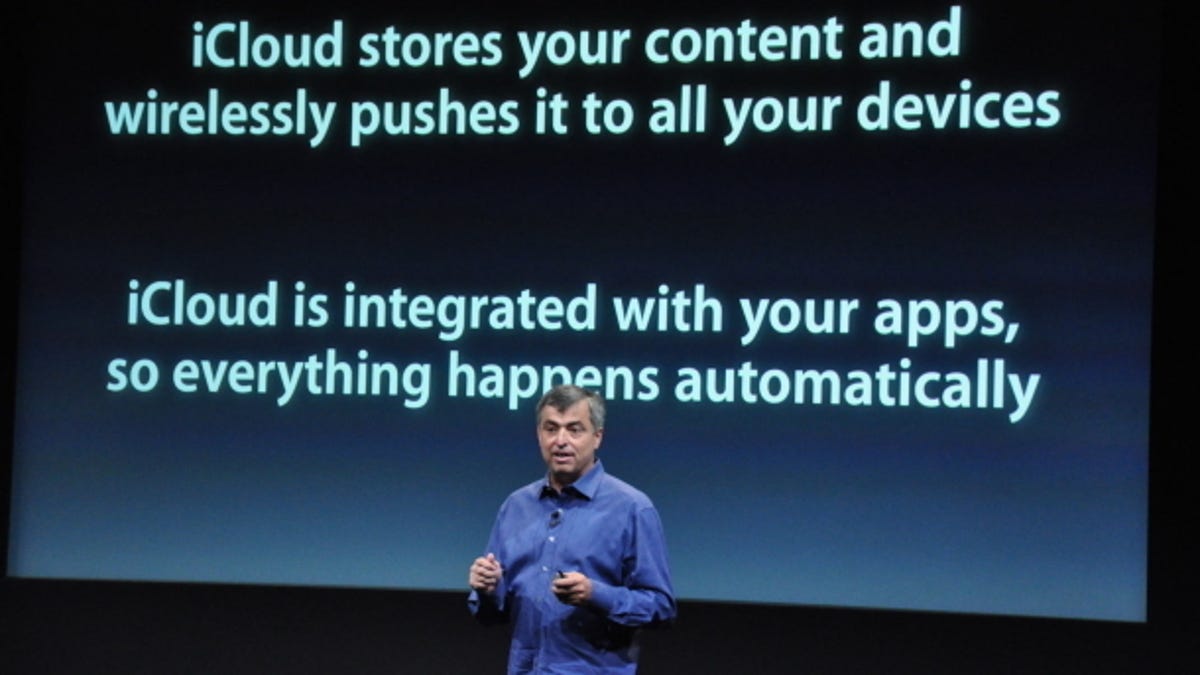What we still don't know about iCloud
Apple's cloud service launches Wednesday, but there are still many things we're a little cloudy on ourselves.

After months of curiosity, Apple's iCloud service will finally be active on October 12, mere days away. While there's a lot we already know about Apple's device-wide set of cloud services, it's becoming clear that the concept is still a mystery for most people--and even, to some extent, for us. Yes, iCloud's still a little cloudy.
We know about document-editing, iTunes Match, photo streams, and cloud syncing of settings and app data, but here's what still confuses us as we approach the day where we'll be figuring it all out for ourselves.
• Liveblog recap: Apple iPhone 4S unveiling
• iOS 5 and iCloud to launch October 12
• WWDC iCloud news roundup
You can redownload iTunes music...but can you erase it?
The beta functionality that currently works in iTunes allows downloading previously purchased music: check. However, there's no way to manually delete tunes once downloaded to make room for other files. How can this be? Will iOS 5 fix this? It seems so, but perhaps only by deleting a song at a time. Can music be deleted at a faster clip? Right now videos/podcasts/apps/photos can be deleted, but not music.
Do videos have a home on iCloud?
It sounds like, despite all the wireless syncing that iCloud will enable, transferring recorded home videos will require good old-fashioned syncing with a computer. Photo streaming has no support for movies, and video isn't discussed in any of Apple's iCloud documentation. Considering how many movies iPhone 4S users are likely to shoot, it's disappointing (but considering the file size of videos, not surprising).
Resolving two versions of one document.
Let's say we're editing the same document that someone else is over iCloud. We're offline, and the other person isn't. What happens next? Google Docs makes collaborating clear, but how this works via iCloud hasn't been completely detailed. Will changes made offline resolve with newer changes, or will a notification/warning be given when the versions are clearly out of sync?
Will Photo Stream save original-resolution photos?
Assuming that the 1,000-photo-caching Photo Stream, which promises easy syncing with iOS devices and Macs alike, doesn't save full-resolution versions of photos, then it'll be useless as a sync mechanism for archive photographs. You'll still need to sync with a computer and pull those full-size photos off, unless we find out otherwise. It's hard to tell on Apple's Web site.
Will the App Store experience be any different from what exists now?
We can already redownload purchased apps and browse purchase history, but the list is long and annoying to browse through, doesn't seem to acknowledge apps gotten via redeemed codes, and won't allow folder organization (say you wanted to put your top five writing apps, or alternative browsers, into separate lists for easy access).
iTunes Match: How do downloaded iTunes versions get resolved with originals?
iTunes Match enables redownloading equivalent iTunes-hosted versions of songs via iTunes, but what happens to the originals when you sync? Are the matched songs merely erased, or temporarily cached on your iOS device? It's unclear how this system will work, and it's also unknown if track labeling (or mislabeling) will interfere with song/artist recognition.
We'll know how living with iCloud is soon enough. Meanwhile, are you still confused about what iCloud brings to the table? Sound off below.

